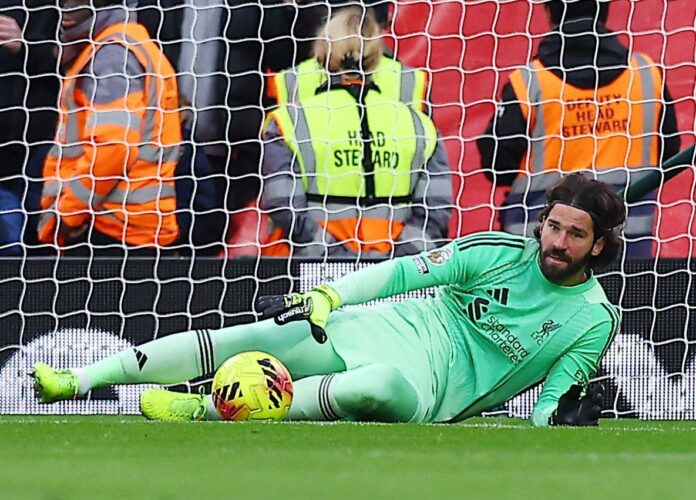Forest defeat deepens Liverpool crisis
When Gags Tandon opened his latest show, there was no attempt to dress things up. Liverpool had just lost 3-0 at home to a Nottingham Forest side sitting 19th in the Premier League, and the sense of shock was matched only by a growing numbness.
This was not a smash-and-grab raid. Forest, described on air as a “bang average” side, came to Anfield and comfortably beat a Liverpool team that had once made this stadium a place visiting teams simply tried to survive. That result did not arrive in isolation either. It slotted into a wider pattern that is now impossible to ignore.
Liverpool have suffered six defeats in their last seven league games, eight in 11 in all competitions. There are no draws to soften the numbers. The goal difference is negative, the confidence is fragile and, as Tandon put it bluntly, “this is as bad as it gets”.
Last season’s title win – the club’s 20th – feels more distant with every passing week. Where there should be momentum and authority, there is hesitation and anxiety. For a manager only months removed from a historic achievement, the contrast is stark.
Patterns of play and selection under scrutiny
On Tandon’s show, the conversation kept circling back to the same theme: structure. Liverpool had 70-plus per cent possession against Forest, yet created next to nothing of genuine quality. One shot on target in 45 minutes attacking the Anfield Road end was repeatedly flagged as a damning statistic.
The accusation was not that Slot is inactive, but that his changes are increasingly incoherent. Substitutions are described as “just throwing lads on”, without a clear shift in approach or recognisable pattern of play. Centre-backs are shuffled, players used out of position and systems hinted at but never fully committed to.
Recruitment adds another layer to the debate. Wing-backs have arrived, but Liverpool rarely look truly comfortable in a back three. Strikers have been signed for significant fees, yet service into central areas is sporadic at best. Supporters watching on are left wondering what the attacking blueprint is supposed to be.
Statistically, some numbers are eye-catching for the wrong reasons. Virgil van Dijk and Dominik Szoboszlai seeing more of the ball than almost anyone is not, in itself, a problem – but when their high touch counts are married to such sterile dominance, questions inevitably turn to what they are being asked to do with that possession.
Dressing room belief and body language
For Tandon and many who called in, this is no longer only about tactics or selection. It feels like something more fundamental has shifted between manager and squad.
Viewers spoke about shoulders dropping after conceding the first goal, sprints not being made that were routine last season, and an overall sense that the players are no longer playing with the same conviction for this coach. The phrase “they’ve stopped running for the manager” surfaced more than once.
That is a serious charge in any dressing room, let alone one built on intensity and collective effort. Under previous regimes, going 1-0 down at Anfield often triggered a surge – a spell where Liverpool would swarm opponents and lean on the crowd. Now, the response can look passive, almost resigned.
It is also why comparisons with earlier low points in the club’s modern history are being made so readily. Roy Hodgson’s troubled spell is no longer viewed as the clear nadir; the numbers under Slot in this run – eight defeats in 11 – are worse. Long winless stretches under Gérard Houllier are referenced, but even those had more draws sprinkled in.
Supporters are not blind to context. They recognise the emotional toll of a turbulent summer and the weight of expectation that comes with succeeding an era-defining predecessor. Yet the consensus emerging on shows like Tandon’s is that empathy cannot excuse everything. Elite managers are paid to stabilise teams in stormy periods, not simply ride the wave.
History, expectations and the “time to go?” question
All of this leads to the question Gags Tandon eventually voiced, with audible reluctance: is it time for Arne Slot to go?
This is not a conclusion he has rushed towards. By his own admission, Tandon has spent weeks arguing against sacking a manager who delivered a league title only months ago. The logic was clear: a coach who has just proved capable of reaching the summit should be trusted to work through a difficult patch.
Forest at home appears to have changed that calculation. Losing heavily to Manchester City away is one thing; being “battered at Anfield” by a team in the relegation zone is another. When that result sits on top of a run stretching back to February, in which Liverpool have lost more than 40 per cent of their games, the argument for patience weakens.
Champions League qualification is not a luxury for this club; it is a financial and sporting necessity. New signings arrived with the expectation of competing for major honours, not scrambling for form. Should this run continue for another few weeks, the risk is that the season’s core objectives slip beyond reach before winter is out.
Tandon is careful to avoid personal attacks. He repeatedly stresses his respect for Slot and gratitude for last season’s achievements. The tone is almost apologetic, more weary than furious. But he is equally clear that something has broken – either in the tactical framework, the dressing room relationship, or both – and that he no longer sees a realistic route back under the current manager.
He even floats the idea that Slot might spare himself a more brutal ending by resigning, rather than waiting to be removed. Talk of who might come next, from interim options to long-term successors, inevitably follows, but remains speculative. The more pressing point is that Liverpool cannot afford stasis.
“Time to go?” is no longer a provocative slogan confined to social media. It is a live, uncomfortable discussion among long-standing supporters who were desperate for Slot to succeed. When those voices – measured, loyal, emotionally invested – start to tip towards change, it tends to be a significant moment in any manager’s reign.
Right now, Arne Slot still occupies one of the most demanding jobs in football. Whether he will be entrusted to lead Liverpool out of this spiral, or remembered as the title-winner whose tenure unravelled with alarming speed, may depend on decisions taken in the very near future.




